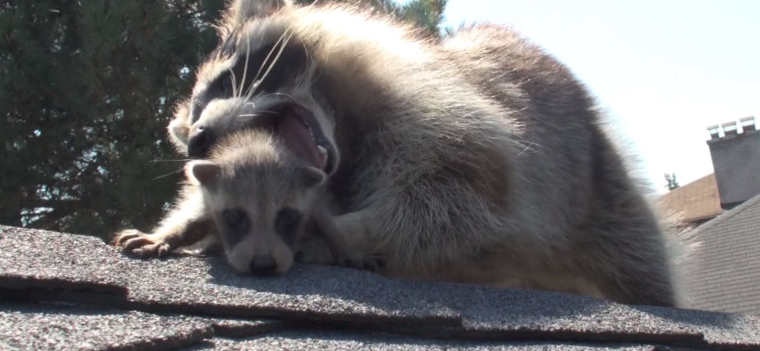-
info@aaanimalcontrol.com
Call us for help in your town
Humane Wildlife Education
Baby Raccoons: What to Look For
Baby Raccoons: What to Look For
Need raccoon removal in your hometown? We service over 500 USA locations! Click here to hire us in your town and check prices- updated for year 2020.
Spring and summer are not good times to experience a problem with raccoons on your property. Sadly, although winter might be the hardest time of the year for these animals, a large number of nesting females will look at urban properties for prime den spots.

Knowing what to look out for will work in your favor if you live in areas that seem to have high raccoon populations. If the building or yard has been hit by raccoon invaders over recent years, there is a chance that they will return to the same spots. Being one step ahead of the game is a smart decision to make sure past problems do not come back to bite you.
Listen Out
Baby raccoons, just like other baby wild animals, will make a fair bit of noise and this will be noise that you can hear. These animals are nocturnal. This is not fun when you are trying to sleep, but when you are trying to locate a family of raccoons, hearing them is actually going to work very well in your favor. You can use your ears to help you locate the small family — the animals can be most heard and will make the most noise during the night. Everything else will be quiet, but raccoons will wake up and start to make more noise.
The noises that you will hear from baby raccoons vary, depending on age and other factors, but keep your ears out for anything that sounds like:
-General moving-around noises, such as thuds, bonks, and scuffles
-Rummaging noises, which is likely to be raccoons in attic insulation and personal belongings
-Scratching noises
-Stomping
-Vocal noises, including chirping
Look
Once you start to look closer into what you think might be a raccoon infestation, you will more than likely find the common signs. Raccoons use latrines that are close to home, but not too close, and you may see feces and urine. Paw prints, fur-patches, grease staining (from fur oils), and even leftover food scraps are all signs that raccoons are hanging around.
Another physical sign of baby raccoons is scratching and actual damage to the outside of a building. Although not directly caused by the youngsters, these are common signs of a female raccoon scrambling around and trying to get inside a building, in order to make it her new nest.
Raccoons are nocturnal. Raccoon mothers will need to go out to find food every now and again. They do stash food if they can, just like other creatures, but they aren't really known for their patience — they will feast on most things they can find immediately, until there is no more left of it.
You can use the nocturnal, feeding nature to your advantage. Watch the building for a few nights and if there is a raccoon problem in your attic or around your property, you will see the mother leave to find food to support her family.
Smell
You're not going to want to think about it, but raccoons, being large animals, will create quite the stench. To start with, there's a good chance you'll have more than one raccoon — a female with her young in a nest. If one animal smells bad, wait until you discover what an entire family of raccoons can smell like.
Musky, dirty, like damp … Raccoon-scent has been described by many names, but it's certainly unpleasant. You'll recognize it a mile off once you've experienced it the first time.
If you have dead raccoons, a prospect we're sure you hadn't allowed for, the stench will be even worse, and it'll get even worse than that quickly. Sadly, it is rare for an entire nest of raccoon babies to survive to a year old, so there is a high chance you WILL be faced with a dead baby raccoon if you leave the nest where it is.
For more information, you may want to click on one of these guides that I wrote:
How much does raccoon removal cost? - get the lowdown on prices.
How to get rid of raccoons - my main raccoon removal info guide.
Example raccoon trapping photographs - get do-it-yourself ideas.
Raccoon job blog - learn from great examples of raccoon jobs I've done.
Raccoons in the attic - what to do to solve the problem.


















